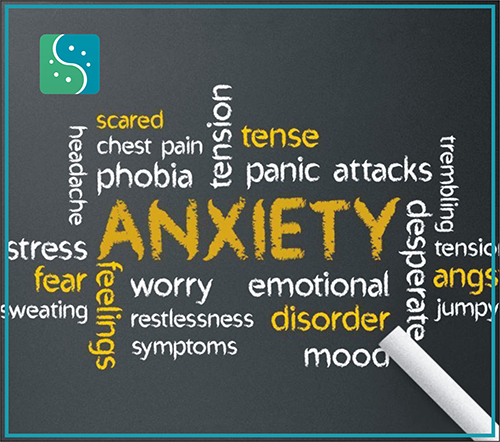Experiencing occasional anxiety is a normal part of life. However, people with anxiety disorders frequently have intense, excessive and persistent worry and fear about everyday situations. Often, anxiety disorders involve repeated episodes of sudden feelings of intense anxiety and fear or terror that reach a peak within minutes (panic attacks).
These feelings of anxiety and panic interfere with daily activities, are difficult to control, are out of proportion to the actual danger and can last a long time. You may avoid places or situations to prevent these feelings. Symptoms may start during childhood or the teen years and continue into adulthood.
Examples of anxiety disorders include generalized anxiety disorder, social anxiety disorder (social phobia), specific phobias and separation anxiety disorder. You can have more than one anxiety disorder. Sometimes anxiety results from a medical condition that needs treatment.
Homoeopathy is one of the most popular holistic systems of medicine. The selection of remedy is based upon the theory of individualization and symptoms similarity by using holistic approach. This is the only way through which a state of complete health can be regained by removing all the sign and symptoms from which the patient is suffering. The aim of homoeopathy is not only to treat anxiety but to address its underlying cause and individual susceptibility. As far as therapeutic medication is concerned, several well-proved homoeopathic medicines are available for treatment of anxiety disorders that can be selected on the basis of cause, condition, sensation and modalities of the complaints. Homoeopathic medicines are prescribed on the basis of individual case analysis.
Some of the benefits of Homoeopathic treatment for anxiety disorders are.
Homoeopathic medicines works amazingly, it is based on a deeper understanding of the patient’s mind-sets, their stress coping system and genetic tendency. It is not habit- forming.
Anxiety disorders are a type of mental health condition. Anxiety makes it difficult to get through your day. Symptoms include feelings of nervousness, panic and fear as well as sweating and a rapid heartbeat.
Anxiety disorder goes beyond the regular nervousness and slight fear you may feel from time to time. An anxiety disorder happens when.

There are several types of anxiety disorders, including:
Other mental health conditions share features with anxiety disorders. These include post traumatic stress disorder and obsessive-compulsive disorder.
Anxiety disorders are like other forms of mental illness. They don’t come from personal weakness, character flaws or problems with upbringing. But researchers don’t know exactly what causes anxiety disorders. They suspect a combination of factors plays a role:
Symptoms vary depending on the type of anxiety disorder you have. General symptoms of an anxiety disorder include:
Physical symptoms. Cold or sweaty hands , dry mouth , heart palpitations , nausea , numbness or tingling in hands or feet , muscle tension, shortness of breath
Mental symptoms. Feeling panic, fear and uneasiness, nightmares, repeated thoughts or flashbacks of traumatic experiences, uncontrollable obsessive thoughts.
Behavioural symptoms. Inability to be still and calm, ritualistic behaviours, such as washing hands repeatedly, trouble sleeping.
There are several steps you can take to cope with anxiety disorder symptoms. These strategies can also make your treatment more effective.
A mix of genetic and environmental factors can raise a person’s risk for developing anxiety disorders. You may be at higher risk if you have or had.
It’s normal for children to feel some amount of anxiety, worry or fear at certain points. For example, a child may feel scared of a thunderstorm or barking dog. A teenager might get anxious about an upcoming test or school dance.
But sometimes, children approach these situations with overwhelming dread or they can’t stop thinking about all the fears tied to one of these events. It may seem that none of your comforts help. These children often get “stuck” on their worries. They have a hard time doing their daily activities, like going to school, playing and falling asleep. They’re extremely reluctant to try something new.
When thinking about your child’s anxiety levels, “getting stuck” is key. It separates the regular worries of childhood from an anxiety disorder that needs professional help. If the anxiety or worry interferes with your child’s ability to function, it may be time to seek help
Anxiety-related problems in children share four common features. The anxiety:
An anxiety disorder can make it difficult to get through your day. Anxiety disorder symptoms include feelings of nervousness, panic and fear. You may also have physical symptoms such as sweating and a rapid heartbeat. But you don’t need to live like this. Homoeopathy provides the best treatment for anxiety disorders. It does not lead to drug dependency and is safe and without any side effects. Homoeopathic medicines help in regaining the individual’s health of the individual and thus providing a quality life. Homoeopathy is based on the principle of individualisation and symptom similarity by using holistic approach and thus treatment should always be taken by an experienced homoeopathic doctor.